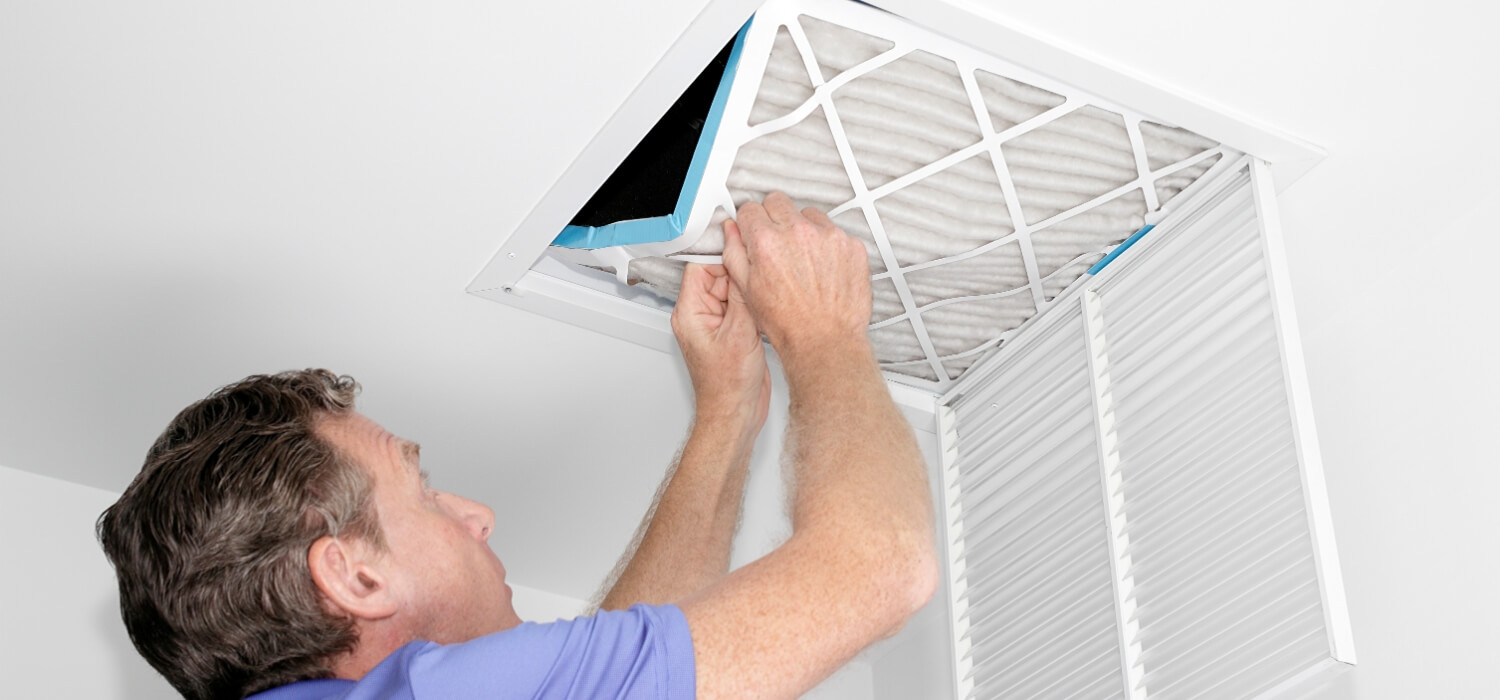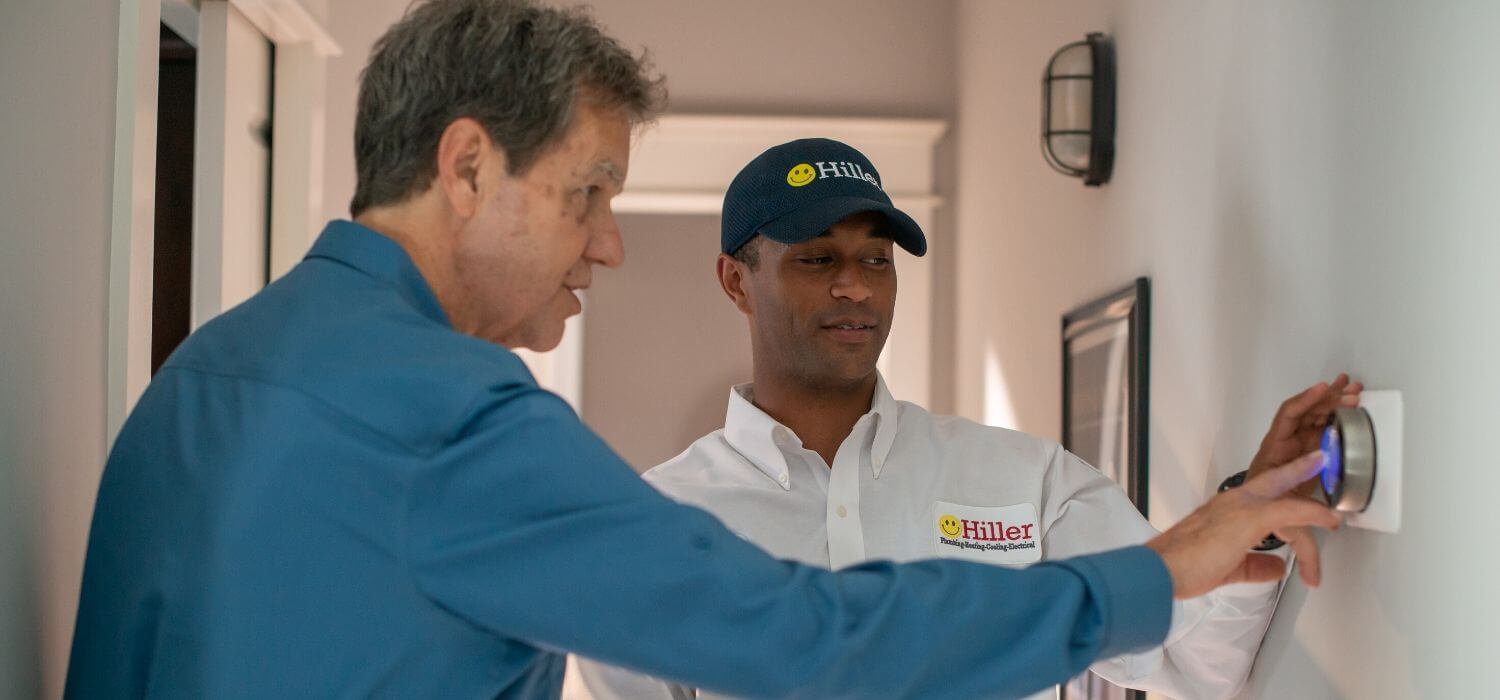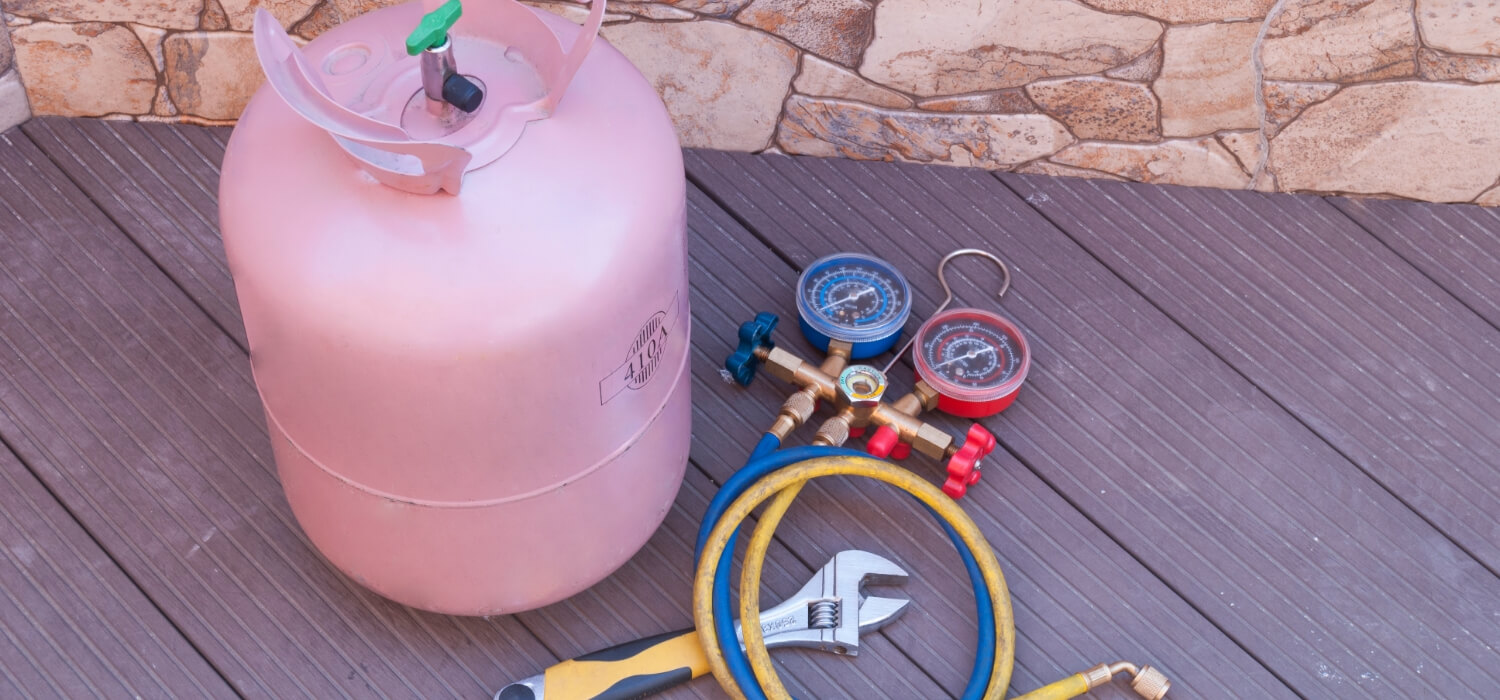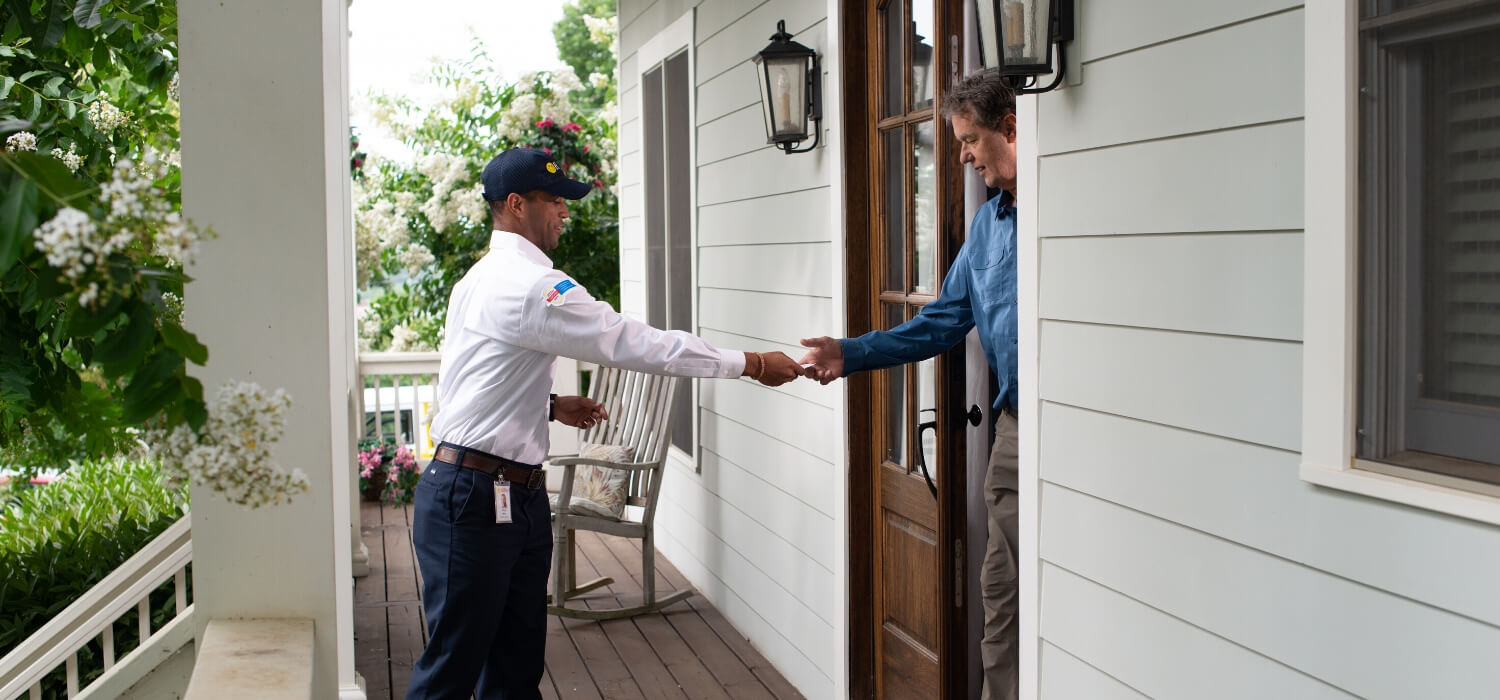10 Common Air Conditioner Problems and How to Prepare for Them
Enjoy reading the latest DIY articles and saving money?
Receive our latest helpful hints, tricks and savings, directly to your inbox.
Posted July 10, 2020
For many people, turning on their air conditioner comes with a feeling of uncertainty. Will it work properly, or is this the year of the costly repair or replacement? We have good news for you! Most common air conditioner problems won’t break the bank, and in many cases, you’ll know there’s a potential problem long before you flip the switch from HEAT to COOL.
Take a minute and read our guide to the 10 most common problems homeowners encounter when they turn on their air conditioner. Not only do we point out the issues, but we also give you tips on preparing for the repairs.
1. Dirty Air Filters

While you might not have the dirtiest filter on the block, if you haven’t changed it since last summer (or the summer before that), it could cause problems this year.
Air filters play the role of gatekeeper for your HVAC system. They trap fine dust particles, pet dander, and a range of allergens you’d prefer not to have circulating inside your home. Not only do air filters protect your airspace, but they also protect your furnace.
If you notice reduced airflow or uneven cooling, check your air filter first. If it’s clogged with debris, it could cause your cooling system to overwork.
Even though a dirty air filter isn’t a repair problem, it’s often the reason behind wear-and-tear on the system. That wear and tear may cause a system breakdown.
See? We’re offering a solution before you end up with a more serious air conditioning repair issue.
2. Clogged AC Drain Line
If you’ve ever dealt with a plumbing clog, you know hair, food, soap, and even toys cause backups. AC drain lines develop clogs too.
A significant contributor to clogged AC drain lines is condensation from the evaporator coils. Condensation combines with dust particles in the air and turns them to mud. The mud washes into the drain line and forms a debris clog.
How do you know you have a clogged drain line?
One sign is excessive humidity in your home. Your cooling system keeps humidity at a safe, healthy level. When your home feels muggier than usual, you may have a clogged drainage line.
If you ignore the issue, you may end up with mechanical problems and AC failure. It’s a simple fix for your heating and cooling service team.
Let your HVAC tech know the humidity levels seem high. They’ll check for a clog and clean the lines if necessary.
3. The AC Will Not Turn On

There’s nothing more frustrating than turning on the air on a sweltering day and hearing nothing.
When the AC doesn’t kick on, start your troubleshooting with the thermostat.
First, make sure no one bumped the thermostat from COOL to HEAT. It happens, and checking now might save you the cost of an HVAC service call.
Finally, check the set-point. You can’t expect the AC to kick on if you’ve set the thermostat higher than the room temperature in the house.
If the thermostat passes the initial checks, you may have a problem on the circuit/control board. You can check to see if you have power coming into the unit with a volt stick. Otherwise, consider calling your HVAC technician.
Even if there’s not a problem today with the thermostat if you’ve not already upgraded to a programmable thermostat, considering doing so before temperatures move into the nineties.
Another thing to check when the AC won’t turn on is your electrical panel. If you have a tripped circuit breaker or a blown a fuse, your air conditioner will not turn on.
4. Did You Know Evaporator Coils Can Freeze?
Many people don’t realize even on a scorching hot day, an essential AC component could freeze and render your system useless (at least until you defrost).
The evaporator coil absorbs heat from the air inside your home. During the process of heat absorption, condensation builds up on the coils. Several issues cause the coils to freeze over, including:
- Dirty Air Filter
- Low Level of Refrigerant
- Dirt Buildup
Frozen evaporator coils slow down the air conditioner’s cooling ability. If your coils freeze up, turn off the system and let the coils defrost. In the meantime, contact your HVAC company to come out and fix the problem.
Condenser coils on the outside unit can also freeze. You can help prevent it by cleaning the coils and keeping debris away from the condenser unit.
5. Your AC Blows Hot Air

Hot air blowing through your home on a hot day is nearly as frustrating as a system that won’t kick on.
A variety of service issues can cause an air conditioner to blow hot or warm air.
We’ll start with the easy fixes by having you check the air filter first. Then, check the coils on the outside unit and make sure they’re not dirty. Next, make sure you don’t have any blocked air vents or loose ductwork.
Now, for the more complex issue.
When hot air blows from your cooling system, and you don’t have a dirty filter or coils, it’s likely a compressor problem. Compressors fail for many reasons, including:
- Insufficient Lubricant
- Blocked Suction Lines
- Electrical Problems
Other than dirty coils, which you can usually clean yourself, the other issues need help from an HVAC specialist.
6. Your Compressor Goes Rogue
The AC compressor moves refrigerant through the cooling system so that it cools the air. Compressors wear out because they get constant use, but they also break down for multiple other reasons including (but not limited to):
- Dirty Condenser Coils
- Too Much or Too Little Refrigerant
- Lack of Oil Lubricant
- Electrical Issues
A compressor also gives warnings when it’s on the brink of failure. When your AC blows warm air, check the compressor.
A defective compressor may also frequently trip the circuit breaker or blow a fuse. Other signs include shaking when the air conditioner kicks on and making unusual noises.
Fixing a rogue compressor could be as simple as cleaning the condenser coil. You could also have a burned wire or a bad capacitor.
7. Leaking Refrigerant Causes a Cooling Crisis

Does this sound like a headline for a summer news story? It’s not uncommon to discover a refrigerant leak when your air conditioner quits cooling your home. Refrigerant leaks almost always require help from a heating and cooling technician.
There’s something else you should know about refrigerant leaks.
Refrigerant (also called HCFC-22, R-22, or Freon), plays a crucial role in cooling your home. If you’re low on refrigerant, you’ll notice less efficiency and temperature fluctuations.
In the old days, a savvy homeowner could give a cooling system a Freon fix, but due to government regulations, by the end of 2020, the R-22 phaseout program will be complete. Your technician may not even find replacement refrigerants. If they do, you’ll pay a hefty price.
If you have a refrigerant leak, it’s time to consider replacing your air conditioning unit. You may find it makes more sense to invest in a new system, rather than continue trying to manage leaks.
For homeowners who install new HVAC systems, manufacturers will use a refrigerant considered safer for the environment. Right now, it’s more expensive, but it’s expected that prices will come down over time as demand increases.
8. Do You Have Leaky Ductwork?
Even though it’s hidden behind walls and in the ceiling, your ductwork plays a critical role in the proper functioning of your air conditioner.
Ductwork moves cold air from the inside AC unit and pushes it out through the air vents. Leaky ducts pose a problem for cooling systems because they allow cool air to escape before it ever gets into your indoor air space.
For homeowners concerned about air conditioner efficiency, leaks in the ductwork should get prompt attention.
Leaks in the ductwork occur for a variety of reasons. Sometimes ductwork gets bumped out of place during a remodeling project. It’s also possible for rodents to take up residence inside ductwork where they disturb connections in the joints.
Whatever the cause, you don’t want gaps in the ductwork to let cool air escape. A simple fix is covering the leak with duct tape. If you have crushed ductwork or damaged joints, the remedy is usually replacing those pieces.
9. Is No Air Better Than Hot Air?

Our vote is no! If your system isn’t pushing air through the vents at all, you likely have a fan motor issue.
The fan motor pumps air through the system and circulates it into your home. Once the fan motor breaks down, you’ll have no circulation of cool air.
Your fan motor works hard and receives a lot of wear tear. It’s one of the parts most often repaired or replaced. While it is possible to troubleshoot a fan motor issue on your own, it’s best if you call a qualified HVAC technician to check things out and make the repairs.
10. Air Conditioners and Noise
You might learn to block out the noise made by your unit, but that doesn’t mean you don’t have a common air conditioner problem.
Keep in mind, cooling system electrical components do make clicking noises when the AC starts up and shuts down. If you hear ongoing clicking sounds, you may have a thermostat preparing to go bad or a defective control. Ignoring electrical system noises puts your AC at risk for bigger problems in the future.
If the system makes squealing sounds, check the belt. Belts sometimes go out of alignment, and they also wear out. Squealing is also caused by malfunctioning fan motors or the blower wheel and its housing.
Grinding noises usually mean there’s an issue with the AC motor’s bearings. Loose metal in your ductwork can cause pinging and popping. If you hear rattling, check the cover panels and tighten them if they’re loose.
When you hear banging, look for a loose or broken part inside the compressor. It’s a good idea to prepare for a compressor replacement when banging occurs.
Do you hear screaming or whistling? Turn the air conditioner off and call your HVAC professional. You likely have a refrigerant leak, which poses two problems. Leaks can damage the air conditioner and pose dangers to your health.
Screaming noises can also mean you have a high internal pressure issue inside the compressor. This is a safety issue, and you can’t ignore it.
Need Help Troubleshooting Common Air Conditioner Problems?

Now that you know a little more about common air conditioner problems, you’ll want to make sure you make repairs as soon as you detect trouble.
Most problems don’t go away without intervention, and waiting too long to call a professional technician could risk further damage to your cooling system. If you need help troubleshooting, or you’d like to schedule repairs, give us a call!
We’re also able to set you up with a routine maintenance schedule so that we can detect problems early in the game before your system breaks down on a hot day.
 Daily Promotion
Daily Promotion
$500 Off Tankless Water Heater
Upgrade your comfort and give back this season.
Get Promotion